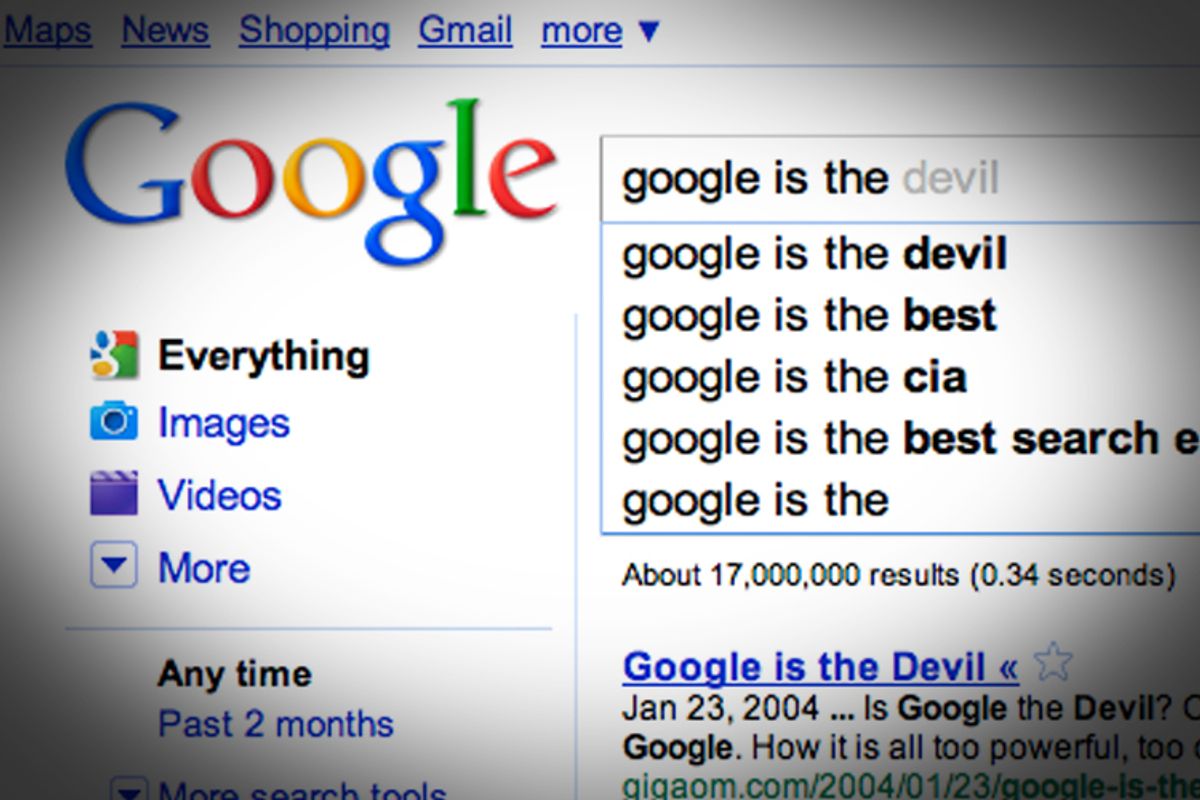Calling Google Instant "revolutionary," as its creators did when they launched it today, seems a bit much. Actually more than a bit -- but I'm definitely going to be using it.
This is more than a new feature. It's a clever and useful upgrade of Google's fundamental search technology, turning the search page into something considerably more interactive than it's been and offering real time-savings. The long-range implications are even more intriguing, as I'll note below.
First, let's look at what it does: You start typing in the search box. As you type you get instant results that Google suggests, based on what people searching for information have done in the past. Google predicts what you're looking for and shows results below the search box. A drop-down list from the search box gives you alternatives, and as you select each the results below shift to reflect that choice.
This is powerful stuff, and not just because it'll save time. It will, from two to five seconds per search, said Marissa Mayer, the Google executive who introduced the product and the team that created it. Do some multiplication -- billions upon billions of searches -- and it starts adding up to serious time.
There's a different character to the way we search. We read faster than we type, and Instant uses the best elements of our human ability to scan text rapidly. The combination is a considerably more interactive search page, including what shows up below.
You need a modern browser -- Chrome, Firefox, Safari or IE 8 -- to use Google Instant, and it isn't working everywhere even in the U.S. yet. The rollout will continue, first to Europe and then to the rest of the world.
A mobile version will arrive later this fall. I'm assuming it'll hit Android phones first.
Other thoughts, and implications:
- People will be using Google's home page a lot more, at least until Google and the browser companies find ways -- assuming they want to -- to create popover windows that create roughly the same effect while not leaving the page we're already on. Google is "working on it," said Mayer.
- You have to be logged in to use Instant. This means Google is going to get even more personal information from you; if you don't think what you search for is highly personal you're not paying attention. (UPDATE: I should have noted that while you have to log in to use it, you can also turn it off.)
- Google takes a nannyish approach to what you are allowed to see. The first letters of words that are deemed violent, hateful or pornographic won't produce instant feedback; you have to click the search button to find what you're looking for. This creates an obvious problem. Google should give users an easy way to turn this off. The more people use this, the more Google is making decisions for us that it should let us be making -- and a search product with this kind of market dominance shouldn't have that power.
- Over time, Google will surely learn more about what you and I want as individuals. So I'm guessing that the results it'll show me will, more and more, differ from the ones it shows you. Is this a good thing or not? I'm not certain.
- What all this means to search-based advertising and SEO -- search engine optimization, what websites do to be more easily found by Google, Bing and other search products -- is unclear. But consider this, for starters: The second page of Google results, and maybe even the bottom of the first page, is going to be much less relevant. If that doesn't change the nature of search, and advertising based on search, nothing will.
- If you're the first brand or concept to pop up when someone types a letter -- e.g. "b" gives you Bank of America (ugh) -- you are an example of the SEO rich getting richer. These are the same results that showed up in popdown menus before, but Google is now guiding you, with the visual results below, to the top choices. This is a powerful feedback loop.
I'll update as I learn more. I'll also scan the Web for the best analysis I can find on this and post links below.



Shares